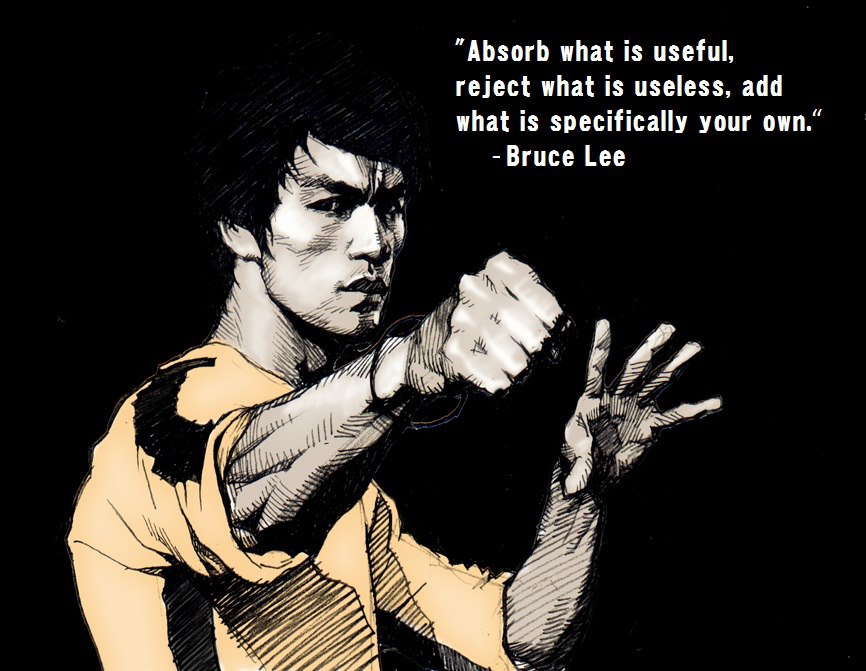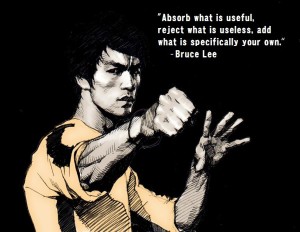
Sun Tzu was a military commander and strategist in ancient China. Over his career, his sayings and proverbs were compiled into a literary collection called “The Art of War.” Sun Tzu’s writings are still used today. However, the use of his ideas have gone beyond war and martials. “The Art of War” is required reading for many of the top tier institutions in business, economics, politics, social psychology, and more. Today’s post centers on five of Sun Tzu’s most influential proverbs.
5 Chinese Proverbs on Strategy that will Change Your Life!
- “Know your enemy and know yourself and you can fight a hundred battles without peril. If you are ignorant of the enemy and know only yourself, you will stand equal chances of winning and losing. If you know neither the enemy nor yourself, you are bound to be defeated in every battle.”
True it is, whether in the world of martial arts, business, politics, or even customer service, self awareness and situational awareness are the keys to success. Particularly when it comes to customer satisfaction, the firm providing the service must be very keen on being sure they are providing what they customer wants, not necessarily what the firm wants to provide. Ultimately, this proverb is a lesson in being truthful to oneself. It is also a lesson on the need to know more than yourself, that you must be fully aware of all the variables in your surrounding.
- “There is no fixed pattern in the use of tactics in war, just as there is no constant course in the flow of water. He who wins modifies his tactics in accordance with the changing enemy situation and this works miracles.”
 Being adaptable; fluid; amorphous, yet determinant are of pivotal importance in life. If we are stuck in our ways, we will become stuck in rough terrain. If we do not change with the situation, the situation will overwhelm us. An absolutely crucial lesson to learn here is this: Doing things out of principle, without purpose… is pointless. Just because things have been done in practice, in business, or in life a certain way does not lend good reason to perpetuate such behaviors. Consider your current situation; perhaps there is change to be made in your business or in your life – new and advantageous angles to which you can approach success.
Being adaptable; fluid; amorphous, yet determinant are of pivotal importance in life. If we are stuck in our ways, we will become stuck in rough terrain. If we do not change with the situation, the situation will overwhelm us. An absolutely crucial lesson to learn here is this: Doing things out of principle, without purpose… is pointless. Just because things have been done in practice, in business, or in life a certain way does not lend good reason to perpetuate such behaviors. Consider your current situation; perhaps there is change to be made in your business or in your life – new and advantageous angles to which you can approach success.
- “There are five factors leading to constant victory: A commander who has the trust of his sovereign and can direct his battles independently wins; one who knows the way of war wins; one who has the support of his soldiers wins; one who can unite his subordinates wins; and one who is adept at analyzing the enemy and sizing up the terrain wins.”
This proverb relates to a business command structure, to politics, to social and familial relationships, and even to internal strife when you struggle against yourself. One thing is clear: unity is the power that wins and the application of knowledge is the wisdom that makes victory happen. Knowing the rules of the game, being sure of the relationship involved, and understanding the ecosystems to which the game is played is a sure way of achieving victory!
- “There are five factors leading to frequent defeat: A commander who is constrained by his sovereign loses; one who does not know the way of war loses; one who is at cross purposes with his generals loses; one who does not know how to use spies loses; and one who does not have the support of his soldiers loses.”
I love this proverb because it can be quickly applied to oneself. If you find yourself limited by your boss, it may be time to move on. If you keep getting defeated in the same fashion, perhaps you need to approach the situation from a new angle. If the people working with you are in dissonance to direction and purpose, healing may be required. If you only look internally and do no research externally, you will surely be lost. Frequent defeat is a demoralizing experience. However, recognizing these factors and combining them with the proverb on victory is a sure way to effect positive change!
- “If the enemy is close at hand and yet remains quiet, he is relying on the natural strength of his position; if he is at a distance and yet provokes you, he is luring you to advance; if he positions himself on level ground, it is because he has some advantage… If his emissaries sound humble and yet he steps up his readiness for war, he plans to advance; if their language is belligerent and they put on aggressive air, he plans to retreat…”
This is my favorite proverb when playing poker. Now, I’m not saying I’m a card shark or anything. All I’m saying is that by keeping to the wisdom of this proverb on strategy, you can unlock some of the fog of war surrounding uncertainty and unknowns. This proverb is particularly useful in business negotiations, when outmaneuvering competition, and checking yourself against any telegraphic intentions you may be communicating to your opposition.









